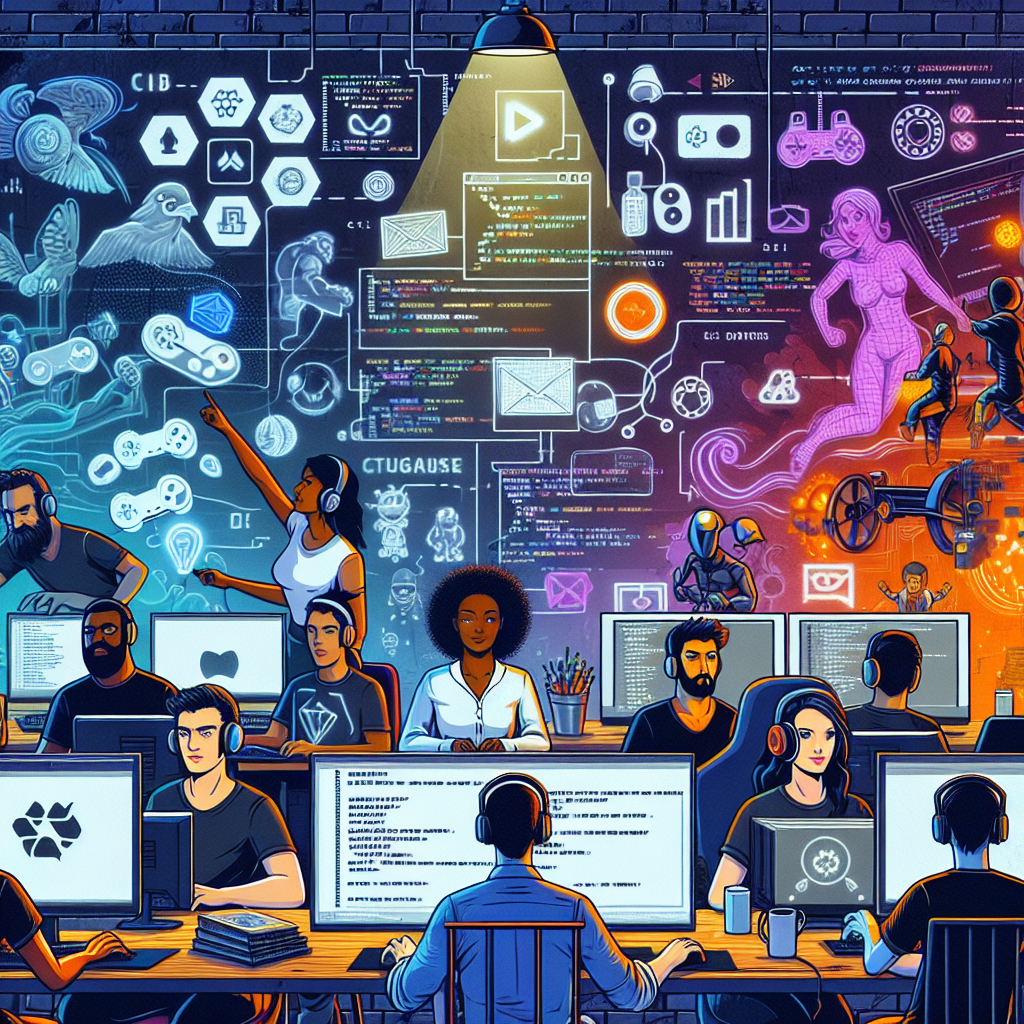Mastering Your Craft: Top Indie Game Development Tips from the Pros
In the dynamic world of indie game development, creativity meets technology in a vibrant melting pot of ideas. With the gaming industry continually growing, aspiring developers are eager to carve their niche and share their unique visions with players. However, the journey from concept to completion can be daunting. To help you navigate this journey, we’ve compiled insights and tips from seasoned indie developers who have successfully turned their passion into profitable projects.
1. Start Small and Iterate
One of the most crucial pieces of advice from experienced developers is to begin with a project that is manageable. It’s easy to become overwhelmed when you dream big, but scope creep can lead to burnout and incomplete projects. Start with a small game concept that’s achievable and allows for iterative development. Once you have that initial game finished, focus on refining it, gathering feedback, and incorporating changes. Early prototypes can reveal design flaws and player perceptions, guiding you toward a more polished final product.
2. Know Your Audience
Understanding your target demographic is key in indie game development. Research your audience’s preferences, including their gaming habits and what genres resonate with them. Creating well-defined personas can help you tailor your game mechanics, artwork, and marketing strategies. Engaging with potential players on social media platforms, forums, and game development communities can provide valuable insights, while also fostering a sense of community around your game before it even launches.
3. Embrace Collaboration
While indie game development is often seen as a solitary endeavor, collaboration can significantly enhance the creativity and quality of your project. Teaming up with other developers, artists, musicians, and writers can inject fresh ideas and expertise into your game. Consider participating in game jams or online forums to connect with like-minded individuals. Even temporary collaborations can yield innovative results, allowing you to expand your skillset while benefiting from others’ strengths.
4. Prioritize Gameplay Over Graphics
In the indie market, where competition is fierce, it’s easy to get drawn into stunning visual aesthetics. However, seasoned developers agree that gameplay should take precedence. Innovative mechanics, engaging storylines, and captivating player experiences ultimately determine a game’s success. Focus on creating intuitive controls and interesting challenges, and use visuals to enhance, rather than overshadow, the core gameplay experience. Great graphics can attract players, but solid mechanics will keep them coming back.
5. Develop a Marketing Strategy Early
Many developers underestimate the power of marketing. It’s never too early to start promoting your game—especially as an indie developer. Create social media accounts, launch a dev blog, or host a newsletter to share updates about your development journey. Utilizing platforms like Twitter, Reddit, and Discord can help you build a community around your game. Engaging with potential players and other developers will not only promote your project but also create a supportive network.
6. Learn to Welcome Feedback
Feedback can be a developer’s best friend or worst enemy. Taking criticism, whether constructive or harsh, is essential for personal growth and the refinement of your game. Conduct playtests with a diverse group of players and encourage them to provide honest feedback. Be open to suggestions and embrace the iterative process. Remember, initial reactions can often reveal problems you might be blind to. Use this feedback to make informed decisions that enhance gameplay and satisfaction.
7. Stay Resilient and Adaptable
The world of game development is fraught with challenges: technical hurdles, creative blocks, and market fluctuations can all test your resolve. The best developers are those who can withstand these pressures and adapt to them. Cultivate resilience by remaining flexible in your approach and learning from each failure. Embrace setbacks as opportunities to grow and improve your project. Remember, the journey of game development is as valuable as the finished product.
8. Showcase Your Work
When the time comes to share your creation with the world, make sure you present it well. High-quality trailers, screenshots, and an engaging landing page are essential for attracting attention. Participate in festivals and expos, both virtual and physical, where you can showcase your game. These opportunities not only provide visibility but also allow you to connect with industry professionals and fellow developers. Don’t underestimate the power of a strong elevator pitch—be prepared to succinctly convey what makes your game unique and worthy of attention.
Conclusion
Mastering the craft of indie game development requires a blend of creativity, strategic planning, and a willingness to learn. By following these tips from professionals in the field, aspiring developers can navigate the complexities of bringing their visions to life. Remember that the journey is just as important as the destination. Embrace the challenges, celebrate the successes, and continue refining your craft. With passion and persistence, your indie game could become the next big hit!




